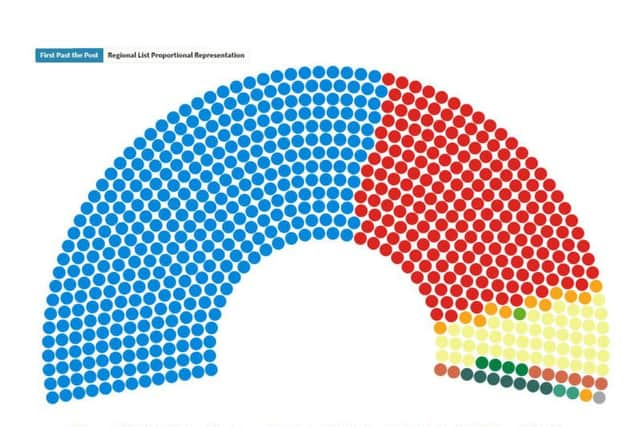General Election 2019: research shows how results could have looked under proportional representation


Modelled under the voting system used in the European Parliament election (d’Hondt list PR), the new total sees the Conservatives take 45.6 per cent of the seats, far closer to their 43.6 per cent vote share and down 12 points from the seats they received under First Past the Post.
The SNP – who will also be over represented in the next Parliament because of the current voting system and have said in the past that they would back a move a more proportional voting system – could see their seat share move to 4.4 per cent of seats under d’Hondt, closer to their actual 3.9 per cent vote share.
Advertisement
Hide AdAdvertisement
Hide Ad

Other parties would have benefited from a fairer system – Labour would have gained 14 seats, the Lib Dems 59, the Brexit Party 10 and the Greens 11.
In Northern Ireland the DUP (-3) and Sinn Fein (-2) would both leave seats with the SDLP (+1) and Alliance (+2) parties both making gains
Darren Hughes, Chief Executive of the Electoral Reform Society, said: “No government should be able to win a big majority on a minority of the vote. Westminster’s voting system is warping our politics beyond recognition and we’re all paying the price. Under proportional voting systems, seats would more closely match votes, and we could end the scourge of millions feeling unrepresented and ignored.“Parties like the Greens and Brexit Party won huge numbers of votes and almost no representation. The Lib Dems saw a surge in votes and their number of seats fall. Something is very clearly wrong.“Voters in Scotland, Wales and Northern Ireland are used to using more democratic voting systems – and having a more cooperative politics as a result.
"Westminster’s system is built on confrontation and warped results, but we can do better than this. We can move to a fairer system, restoring trust in politics and building a better democracy at the same time.”